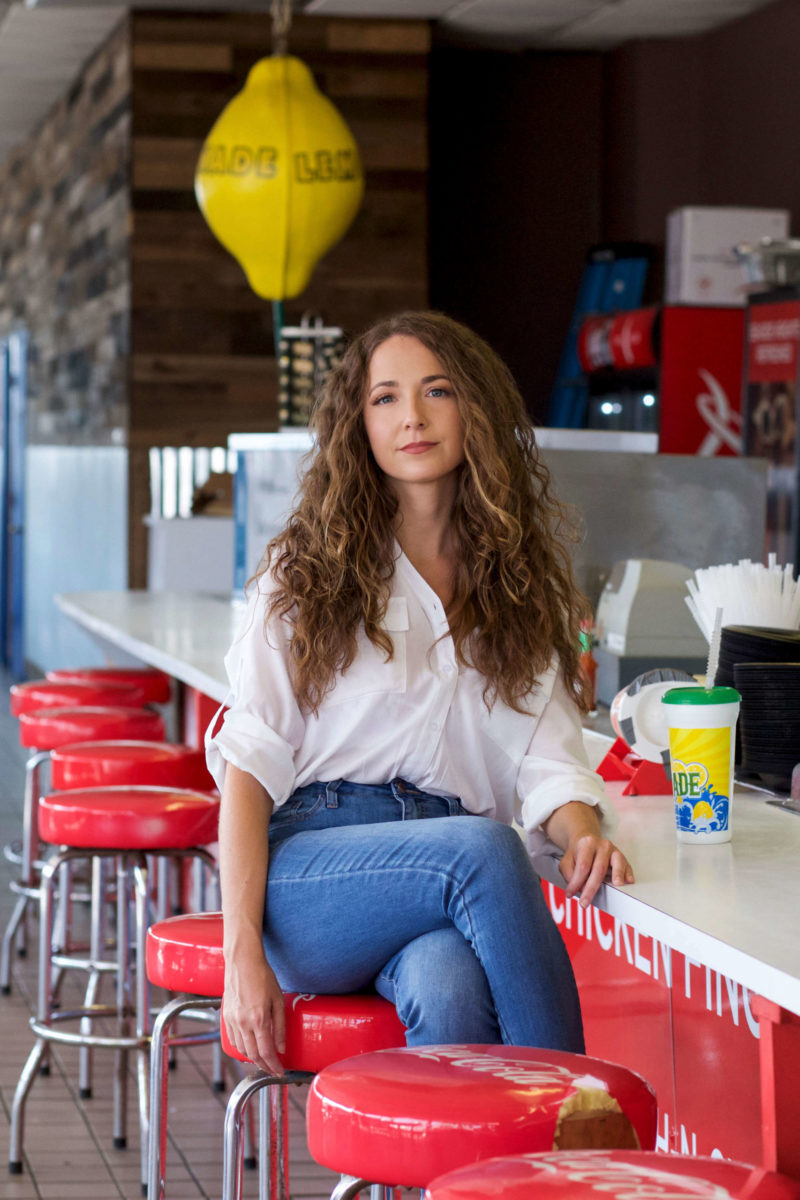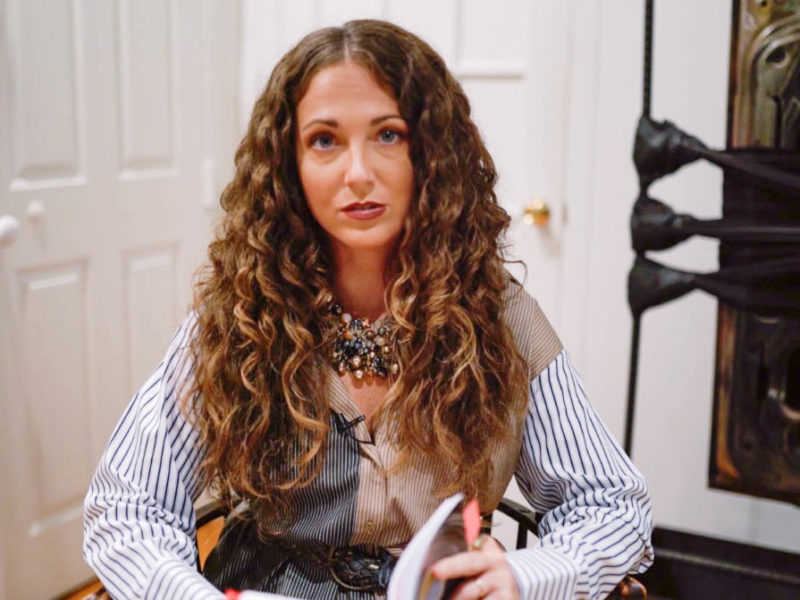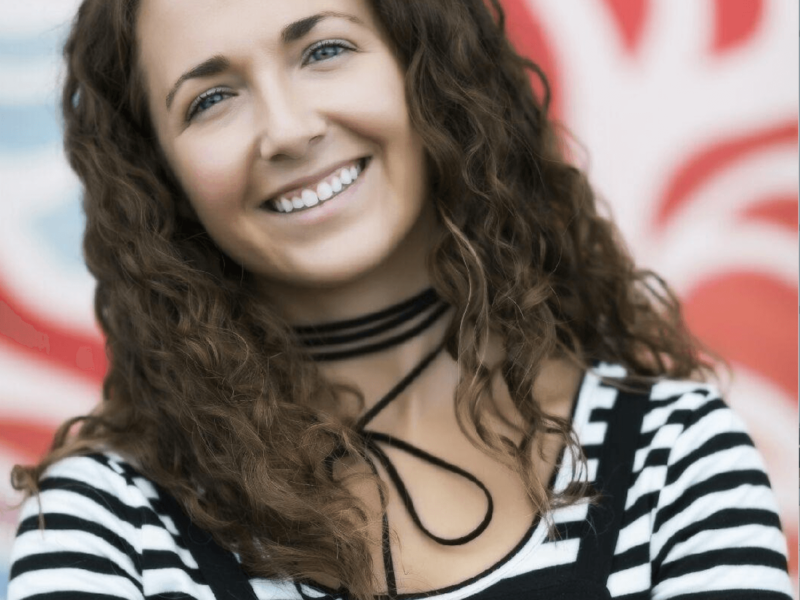6 Questions With Sorry I Haven’t Texted You Back Poet Alicia Cook
Poet Alicia Cook has captivated an audience of nearly 40,000 Instagram followers through her vulnerability and distinct voice. With a focus on addiction, healing, and mental health, her poems are known for their direct, unflinching honesty and rich compassion. Sorry I Haven’t Texted You Back showcases the same traits that made Cook’s first collection such a stand-out: In these stanzas, Cook experiments with form, alludes to her favorite songs, and examines relatable, yet personal themes. However, with her third collection, Cook says she’s been more honest than ever—so honest that there’s “no turning back.” Cook spoke with Read Poetry about her book, her writing process, the special connection she shares with her readers, and more.
Kara Lewis: Each poem in the collection is referred to as a “track,” and ends with the title of a song the speaker is currently listening to. How does music intersect with your poetry and your writing process?
Alicia Cook: Throughout my life, music has helped me process whatever I was going through—just like how my poetry helps others. Music and poetry are becoming more and more blended. You see it today, with singers and songwriters releasing books of poetry between record releases. As I’ve grown as a writer, I have experimented with rhyme, meter, and repetition, just like a songwriter does. I have collaborated with musicians. I was happy to see early reviews where that didn’t go unnoticed. A few mentioned wanting to hear certain poems read aloud, against music. To me, music and poetry are the same art form, just executed differently.
KL: Similarly, the book is split into two “sides.” Side B reimagines, or “remixes,” the original poems from Side A, mostly through erasure and blackout forms. What do these remixes represent?
AC: Since Sorry I Haven’t Texted You Back returns to the form of Stuff I’ve Been Feeling Lately, I did my homework. I had to Google myself and my books, which is always an odd thing to do. I saw that, with my first book, a lot of people wished I had done “more” with the blackout poetry.
In my new collection, I believe I dove deeper and had more fun with the look of the blackout poetry. All of it was hand-drawn by me, using a tablet and a stylus. So, readers will see my brush strokes.
I’m really proud of the results of the blackout poetry. I dug into my subconscious to find the messages I was meant to find in my existing poetry.
At times, the message summarized the original poem. Other times, it changed its meaning entirely, maybe turning a more somber poem into a hopeful one. I’ve always loved blackout poetry because of how it’s created. I could give 10 people the same exact page of poetry, and all 10 would find a different message from that same text.
KL: This collection considers many themes, but particularly focuses on mental health and relationships. Why did you choose to include both love poems and poems about depression and anxiety in the same book?
AC: One main goal of this collection was to show that we need to stop putting mental health in a box. Our mental health bleeds into every facet of our lives, especially our relationships—be it with family, friends, or our romantic partners.
I chose to open the book with “Track One” focusing on how a partner might misinterpret their loved one’s anxiety or depression, because it happens ALL THE TIME. “Track Five” I wrote about my mother not needing to ask me details about what I was going through, because she just knew. Her being there for me during that time was enough. There are small moments in all the poems that nod to living with mental health issues.
I included love poems and poems about depression and anxiety in the same book, because anyone with depression or anxiety will tell you that it deeply impacts our relationships. We can’t talk about one without the other.
KL: The release of Sorry I Haven’t Texted You Back marks your third published collection. How has your writing evolved throughout your career, and what new territory does this book cover?
AC: Sorry I Haven’t Texted You Back always felt… different to me. Like I needed to write it. Like I couldn’t help myself. Like I needed to be honest about the grit and mess. We need to stop romanticizing mental health and substance use issues. I write in this collection, “I am running out of metaphors to make how shitty I feel more digestible, quotable, poetic.”
Healing starts only once the uncomfortable moments, difficult conversations, and hard epiphanies happen. The new territory this book covers is that I lay it all out there. This is my third book, and the most nervous I have ever been. I know that once you commit to being this honest, there is no turning back.
KL: How does your Instagram audience impact the way you write and promote poetry? As someone who speaks out about often stigmatized topics—like mental health and addiction—do you feel a greater connection with your followers?
AC: I know what it’s like to feel like NO ONE understands what you’re going through. That isolation is numbing, and shouldn’t exist, because many people go through the same hardships. I was that person for a long time. I couldn’t find people who knew what it was like to go through something so gutting.
Once my platform grew, I pledged that I would respond to every person who reached out to me. I knew that if I just reached back, they wouldn’t feel that pain as much. I would’ve loved it if that positive component of social media existed when I was younger and needed someone, even a stranger, to tell me that I wasn’t alone.
KL: What’s next for you creatively?
AC: An iced coffee and a deep breath!
Order Sorry I Haven’t Texted You Back here.



